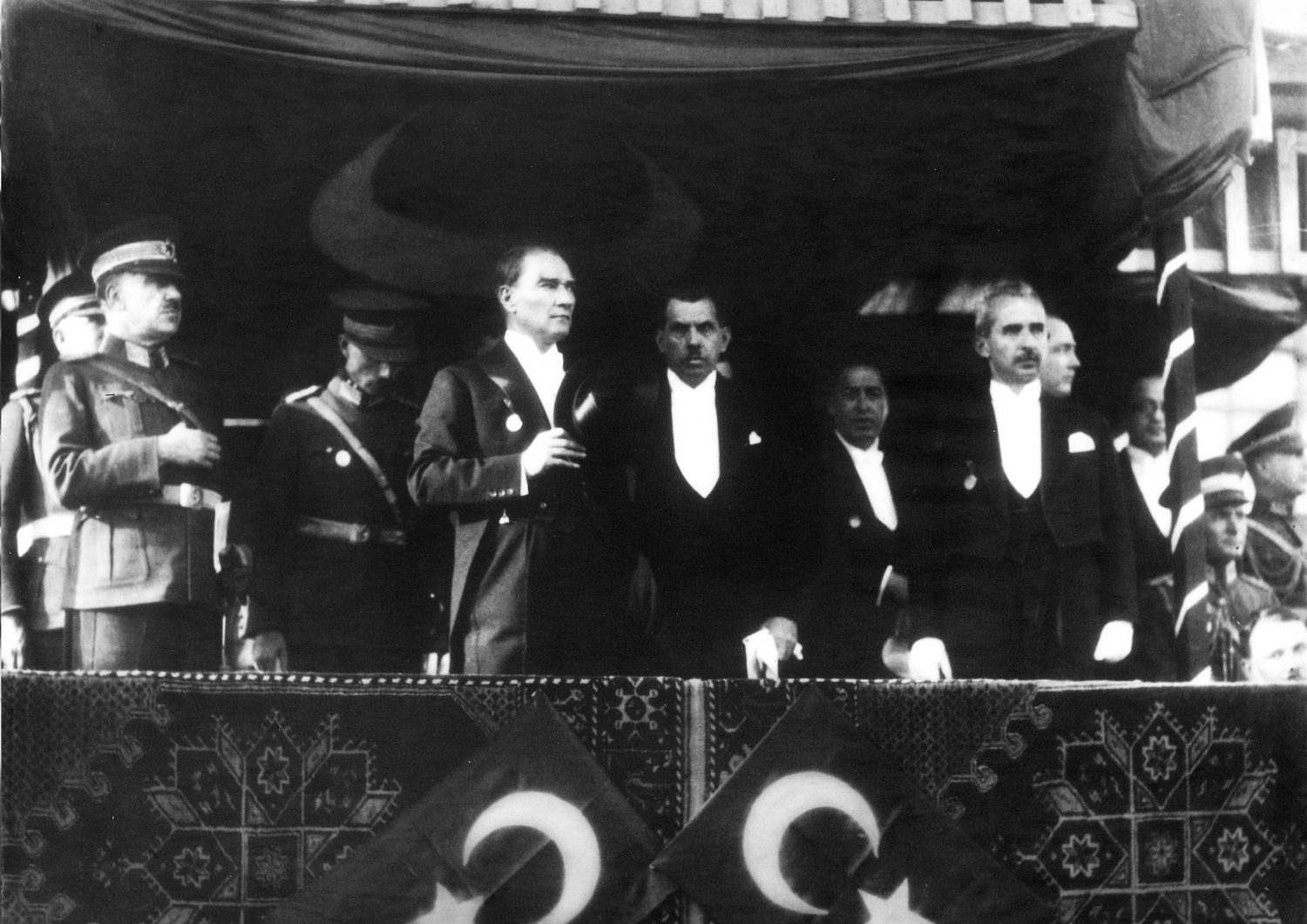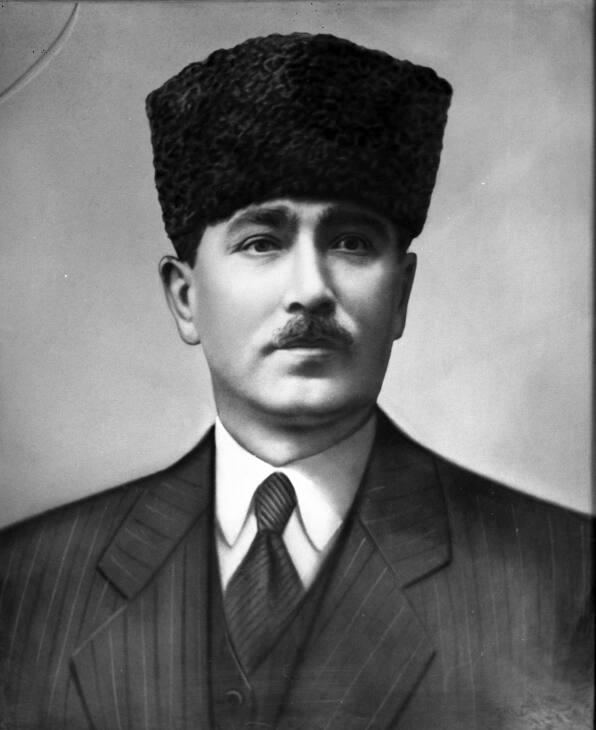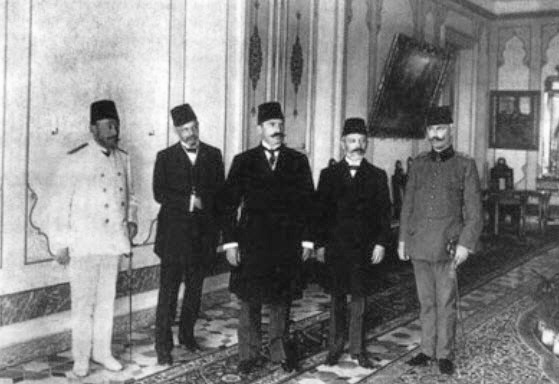|
Turkish Prime Minister
The prime minister of Turkey, officially the prime minister of the Republic of Turkey (), was the head of government of the Republic of Turkey from 1920 to 2018, who led a political coalition in the Turkish Parliament and presided over the cabinet. Throughout the political history of Turkey, functions and powers of the post have changed occasionally. Prior to its dissolution as a result of the 2017 Constitutional Referendum, the holder of the premiership was generally the dominant figure in Turkish politics, outweighing the president. Premiership in the Ottoman Era In the Ottoman Empire, the prime minister of the Ottoman sultan held the title of Grand Vizier (), though in the 19th century, some heads of government were appointed with the title Prime Minister, (). Starting in the 1830s, Grand Viziers began to minister cabinets. After the Tanzimat period in the 19th century, the grand viziers came to assume a role more like that of the prime ministers of contemporary Western E ... [...More Info...] [...Related Items...] OR: [Wikipedia] [Google] [Baidu] |
Binali Yıldırım
Binali Yıldırım (; born 20 December 1955) is a Turkish politician who served as the List of Prime Ministers of Turkey, 27th and last prime minister of Turkey from 2016 to 2018 and Speaker of the Grand National Assembly from 2018 to 2019. He was Leader of the Justice and Development Party (Turkey), Justice and Development Party (AKP) from 2016 to 2017, then becoming parliamentary leader until 2018. Yıldırım served as chairman of the board of Directors of İDO, Istanbul Fast Ferries Company (İDO) from 1994 to 2000 before being elected as an AKP Member of Parliament for Istanbul (1st electoral district), Istanbul's first electoral district during the 2002 Turkish general election, 2002 general election. He was appointed as Ministry of Transport, Maritime and Communication (Turkey), Minister of Transport by Prime Minister Abdullah Gül and continued in office after Erdoğan became prime minister in 2003. As Transport Minister, he presided over numerous projects such as Marmara ... [...More Info...] [...Related Items...] OR: [Wikipedia] [Google] [Baidu] |
Ottoman Sultan
The sultans of the Ottoman Empire (), who were all members of the Ottoman dynasty (House of Osman), ruled over the Boundaries between the continents, transcontinental empire from its perceived inception in 1299 to Dissolution of the Ottoman Empire, its dissolution in 1922. At its height, the Ottoman Empire spanned an area from Budin Eyalet, Hungary in the north to Yemen Eyalet, Yemen in the south and from Ottoman Algeria, Algeria in the west to Ottoman Iraq, Iraq in the east. Administered at first from the city of Söğüt since before 1280 and then from the city of Bursa since 1323 or 1324, the empire's capital was moved to Adrianople (now known as Edirne in English) in 1363 following Ottoman conquest of Adrianople, its conquest by Murad I and then to Constantinople (present-day Istanbul) in 1453 following Fall of Constantinople, its conquest by Mehmed the Conqueror, Mehmed II. The Rise of the Ottoman Empire, Ottoman Empire's early years have been the subject of varying narrat ... [...More Info...] [...Related Items...] OR: [Wikipedia] [Google] [Baidu] |
Politics Of Turkey
Politics () is the set of activities that are associated with making decisions in groups, or other forms of power relations among individuals, such as the distribution of status or resources. The branch of social science that studies politics and government is referred to as political science. Politics may be used positively in the context of a "political solution" which is compromising and non-violent, or descriptively as "the art or science of government", but the word often also carries a negative connotation.. The concept has been defined in various ways, and different approaches have fundamentally differing views on whether it should be used extensively or in a limited way, empirically or normatively, and on whether conflict or co-operation is more essential to it. A variety of methods are deployed in politics, which include promoting one's own political views among people, negotiation with other political subjects, making laws, and exercising internal and external ... [...More Info...] [...Related Items...] OR: [Wikipedia] [Google] [Baidu] |
1950 Turkish General Election
General elections were held in Turkey on 14 May 1950, using the multiple non-transferable vote electoral system.Dieter Nohlen, Florian Grotz & Christof Hartmann (2001) ''Elections in Asia: A data handbook, Volume I'', p238 The result was a landslide victory for the opposition Democrat Party (DP), which won 416 of the 487 seats with 55% of the vote. Unlike the previous elections in 1946, the 1950 elections took place in a calm atmosphere. The results meant that Republican People's Party (CHP) was ousted from power for the first time since the foundation of the republic. Due to the electoral system designed to boost the dominant party's parliamentary numbers, the Democrat Party won 85% of the seats with only 55% of the popular vote. The CHP won 14% of the seats despite receiving nearly 40% of the popular vote. Results Aftermath On 22 May Celal Bayar was elected president. On the same day, the first DP government headed by the Prime Minister Adnan Menderes was formed. Bayar ... [...More Info...] [...Related Items...] OR: [Wikipedia] [Google] [Baidu] |
One-party Period Of The Republic Of Turkey
The one-party period of the Republic of Turkey () began with the formal establishment of the country in 1923. The Republican People's Party (CHP) was the only party between 1923 and 1945, when the National Development Party was established. After winning the first multiparty elections in 1946 by a landslide, the Republican People's Party lost the majority to the Democratic Party in the 1950 elections. During the one-party period, President Mustafa Kemal Atatürk repeatedly requested that opposition parties be established to stand against the Republican People's Party in order to transition into multi-party democracy. Kâzım Karabekir established the Progressive Republican Party in 1924 but it was banned after its members' involvement in the 1925 Sheikh Said rebellion. In 1930 the Liberal Republican Party was established but then dissolved again by its founder. Despite Atatürk's efforts to establish a self-propagating multi-party system, this was only established after hi ... [...More Info...] [...Related Items...] OR: [Wikipedia] [Google] [Baidu] |
Republican People's Party
The Republican People's Party (RPP; , CHP ) is a Kemalism, Kemalist and Social democracy, social democratic political party in Turkey. It is the oldest List of political parties in Turkey, political party in Turkey, founded by Mustafa Kemal Atatürk, the List of presidents of Turkey, first president and founder of the modern Turkey, Republic of Türkiye. The party is also cited as the founding party of modern Turkey. Its logo consists of the The Six Arrows, Six Arrows, which represent the foundational principles of Kemalism: republicanism, reformism, Secularism in Turkey, laicism, populism, nationalism, and statism. It is currently the second largest party in Grand National Assembly of Turkey, Grand National Assembly with 135 MPs, behind the ruling conservative Justice and Development Party (Turkey), Justice and Development Party (AKP). The political party has its origins in the various Association for Defence of National Rights, resistance groups founded during the Turkish W ... [...More Info...] [...Related Items...] OR: [Wikipedia] [Google] [Baidu] |
Speaker Of The Grand National Assembly
This article lists the speakers of the Grand National Assembly of Turkey. The name of the parliament of Turkey, originally and currently the Grand National Assembly of Turkey () since its establishment on 23 April 1920, has for short periods been changed. A Senate of the Republic (Turkey), Senate also existed besides the National Assembly between 1960 and 1980. List of speakers Temporary speakers When a new session of the Grand National Assembly meets, the oldest parliament member temporarily acts as the speaker until a new speaker is elected. See also * Senate of the Republic (Turkey), Senate of the Republic * List of chairmen of the Senate of Turkey References Grand National Assembly of Turkey official website {{Speakers of the Parliament of Turkey Lists of legislative speakers, Turkey Speakers of the Parliament of Turkey, Lists of political office-holders in Turkey, Speakers of Parliament ... [...More Info...] [...Related Items...] OR: [Wikipedia] [Google] [Baidu] |
1st Parliament Of Turkey
The first parliament of Turkey existed from 23 April 1920 to 11 August 1923. This parliament existed before the Republic of Turkey was proclaimed. Background The parliament of the Ottoman Empire was in Constantinople (now Istanbul). But after the First World War, İstanbul was occupied by the Allies of World War I (United Kingdom, France and Italy). The Ottoman sultan was still living in his palace; but on 16 March 1920, the parliament was abolished by the Allies. Some MPs were arrested and later expelled to Malta. Ankara parliament The nationalists in Anatolia called for another parliament in Angora (now Ankara), which was not under Allied occupation. All former Ottoman MPs were invited to this parliament. Most MPs who were had not been arrested accepted the invitation and came to Angora. There were also new MPs which were elected in the 66 provinces. But due to time limitations and the fact that most of the country was under Allied control, they were elected by the Turkish Nation ... [...More Info...] [...Related Items...] OR: [Wikipedia] [Google] [Baidu] |
Turkish National Movement
The Turkish National Movement (), also known as the Anatolian Movement (), the Nationalist Movement (), and the Kemalists (, ''Kemalciler'' or ''Kemalistler''), included political and military activities of the Turkish revolutionaries that resulted in the creation and shaping of the modern Republic of Turkey, as a consequence of the defeat of the Ottoman Empire in World War I and the subsequent occupation of Constantinople and partitioning of the Ottoman Empire by the Allies under the terms of the Armistice of Mudros. The Turkish revolutionaries rebelled against this partitioning and against the Treaty of Sèvres, signed in 1920 by the Ottoman government. Most revolutionaries were former members of the Committee of Union and Progress. This establishment of an alliance of Turkish revolutionaries during the partitioning resulted in the Turkish War of Independence, the genocides of the Anatolian native nations, the abolition of the Ottoman sultanate on 1 November 1922 and th ... [...More Info...] [...Related Items...] OR: [Wikipedia] [Google] [Baidu] |
Ankara
Ankara is the capital city of Turkey and List of national capitals by area, the largest capital by area in the world. Located in the Central Anatolia Region, central part of Anatolia, the city has a population of 5,290,822 in its urban center (Etimesgut, Yenimahalle, Çankaya District, Çankaya, Keçiören, Altındağ, Pursaklar, Mamak, Ankara, Mamak, Gölbaşı, Ankara, Gölbaşı, Sincan, Ankara, Sincan) and 5,864,049 in Ankara Province (total of 25 districts). Ankara is Turkey's List of cities in Turkey, second-largest city by population after Istanbul, first by urban land area, and third by metro land area after Konya and Sivas. Ankara was historically known as Ancyra and Angora. Serving as the capital of the ancient Celts, Celtic state of Galatia (280–64 BC), and later of the Roman Empire, Roman province with the Galatia (Roman province), same name (25 BC–7th century), Ankara has various Hattians, Hattian, Hittites, Hittite, Lydian, Phrygian, Galatians (people ... [...More Info...] [...Related Items...] OR: [Wikipedia] [Google] [Baidu] |
Second Constitutional Era
The Second Constitutional Era (; ) was the period of restored parliamentary rule in the Ottoman Empire between the 1908 Young Turk Revolution and the 1920 retraction of the constitution, after the dissolution of the Chamber of Deputies, during the empire's twilight years. Alternative end dates for era include 1912 or 1913. The rule of Sultan Abdulhamid II had been opposed by the Young Turks, an underground movement of reformists which called for the restoration of constitutional monarchy. In 1908, a faction within the Young Turks called the Committee of Union and Progress (CUP) forced Abdulhamid II to restore the liberal constitution of 1876 and the General Assembly in the Young Turk Revolution. Abdulhamid II had previously suspended the parliament and constitution in 1878, two years after they had been introduced. Whereas the short First Constitutional Era lacked political parties, the second era initially featured unprecedented political pluralism within the empire and openly ... [...More Info...] [...Related Items...] OR: [Wikipedia] [Google] [Baidu] |
General Assembly Of The Ottoman Empire
The General Assembly (; French romanization: "Medjliss Oumoumi" or ''Genel Parlamento''; ) was the first attempt at representative democracy by the imperial government of the Ottoman Empire. Also known as the Ottoman Parliament ('' Legislation ottomane'' Volume 5: https://upload.wikimedia.org/wikipedia/commons/6/67/L%C3%A9gislation_ottomane_ou_Recueil_des_Aristarchi-Bey_Gr%C3%A9goire_Tome5.pdf p. 295 (PDF p. 299/370)), it was located in Constantinople (Istanbul Istanbul is the List of largest cities and towns in Turkey, largest city in Turkey, constituting the country's economic, cultural, and historical heart. With Demographics of Istanbul, a population over , it is home to 18% of the Demographics ...) and was composed of bicameralism, two houses: an upper house (Senate of the Ottoman Empire, Senate, ''Meclis-i Âyân''), and a lower house (Chamber of Deputies (Ottoman Empire), Chamber of Deputies, ''Meclis-i Mebusân''). The General Assembly was First Constitutional Er ... [...More Info...] [...Related Items...] OR: [Wikipedia] [Google] [Baidu] |






